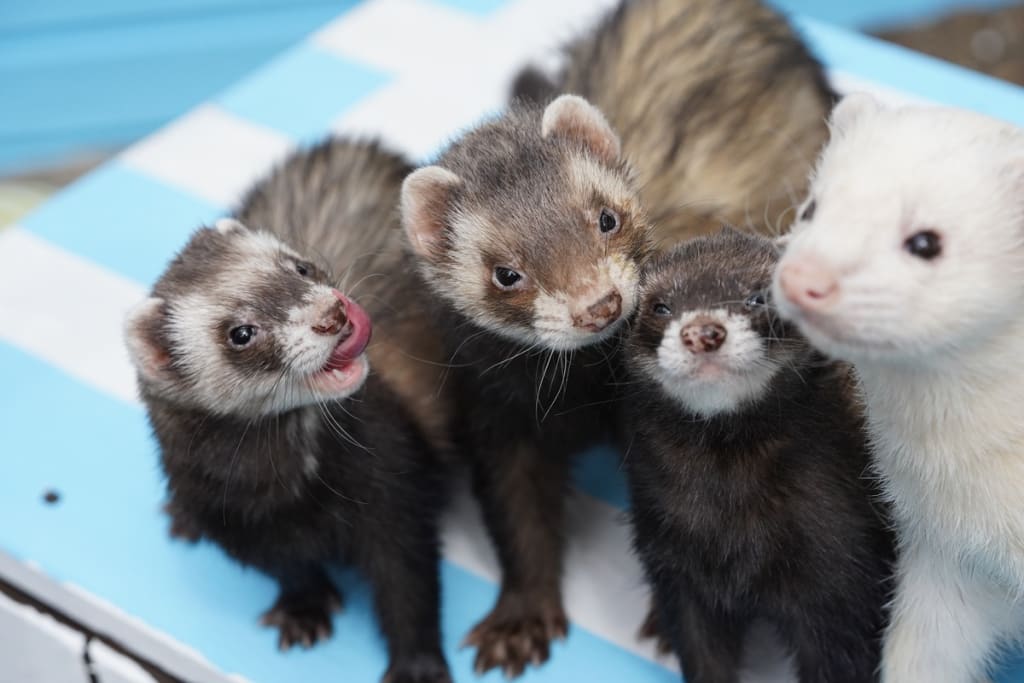
Title: Understanding the Unique Nutritional Needs of a Ferret and How to Meet Them
Ferrets are small, carnivorous mammals that are popular as pets around the world. They are known for their playful and curious nature, as well as their unique physical and behavioral characteristics. Ferrets require a specific diet that is high in animal protein and fat, and low in carbohydrates. They require frequent feedings throughout the day and should be provided with a high-quality, commercial ferret food. Ferrets are prone to a few nutritional issues that can be avoided with proper diet and care, such as hairball blockages and insulinoma. Consultation with a veterinarian is important for any concerns regarding your ferret's nutrition.
Subheadings:
- Introduction
- Understanding a Ferret's Diet
- Choosing the Right Food for Your Ferret
- Feeding Schedule and Portion Control
- Supplementing Your Ferret's Diet
- Common Nutritional Issues in Ferrets
- Conclusion
Introduction
Ferrets are beloved pets known for their playful and curious nature. As carnivorous animals, they have unique nutritional needs that require a specific diet to maintain their health and wellbeing. In this article, we will discuss the importance of understanding a ferret's nutritional needs and how to properly meet them.
Understanding a Ferret's Diet
As carnivorous animals, ferrets require a diet that is high in animal protein and fat. They cannot digest plant matter, so it is important to avoid feeding them fruits, vegetables, and grains. Additionally, ferrets have a fast metabolism and require frequent feedings throughout the day.
Choosing the Right Food for Your Ferret
When it comes to choosing food for your ferret, it is important to choose a high-quality, commercial ferret food that meets their nutritional needs. Look for a food that contains a minimum of 34% protein and 20% fat, with animal protein as the first ingredient.
Avoid feeding your ferret dog or cat food, as these do not contain the necessary nutrients for a ferret's diet. Additionally, avoid feeding your ferret treats that are high in sugar or carbohydrates, as these can lead to health issues such as obesity and dental problems.
Feeding Schedule and Portion Control
Ferrets require frequent feedings throughout the day, typically 4-6 small meals. It is important to establish a feeding schedule and stick to it to ensure your ferret is receiving the appropriate amount of nutrients.
When it comes to portion control, it is important to monitor your ferret's weight and adjust their food intake accordingly. Overfeeding can lead to health issues such as obesity, while underfeeding can lead to malnutrition.
Supplementing Your Ferret's Diet
While a high-quality ferret food should provide all the necessary nutrients, there are a few supplements that can be added to your ferret's diet to ensure optimal health. Ferrets require a source of animal-based omega-3 fatty acids, which can be found in fish oil or krill oil supplements. Additionally, providing your ferret with a small amount of egg or meat can provide additional protein.
Common Nutritional Issues in Ferrets
Ferrets are prone to a few nutritional issues that can be avoided with proper diet and care. One common issue is hairball blockages, which can be prevented by providing your ferret with a high-quality, high-fiber food and ensuring they are regularly groomed.
Another issue is insulinoma, a condition in which the pancreas produces too much insulin. This can be prevented by feeding your ferret a low-carbohydrate diet and avoiding sugary treats.
Conclusion
Ferrets have unique nutritional needs that require a specific diet to maintain their health and wellbeing. By understanding their diet and feeding them a high-quality ferret food, providing frequent feedings and portion control, supplementing their diet with necessary nutrients, and avoiding common nutritional issues, you can ensure your ferret lives a happy and healthy life. It is important to consult with a veterinarian for any concerns or questions regarding your ferret's nutrition.
About the Creator
Lopo
Hi there, Lopo ,a Person with a passion for movies and staying up-to-date with the latest topics. From blockbuster hits ,I've got you covered with insightful reviews. Join me for lively discussions on the latest news and trends,






Comments
There are no comments for this story
Be the first to respond and start the conversation.